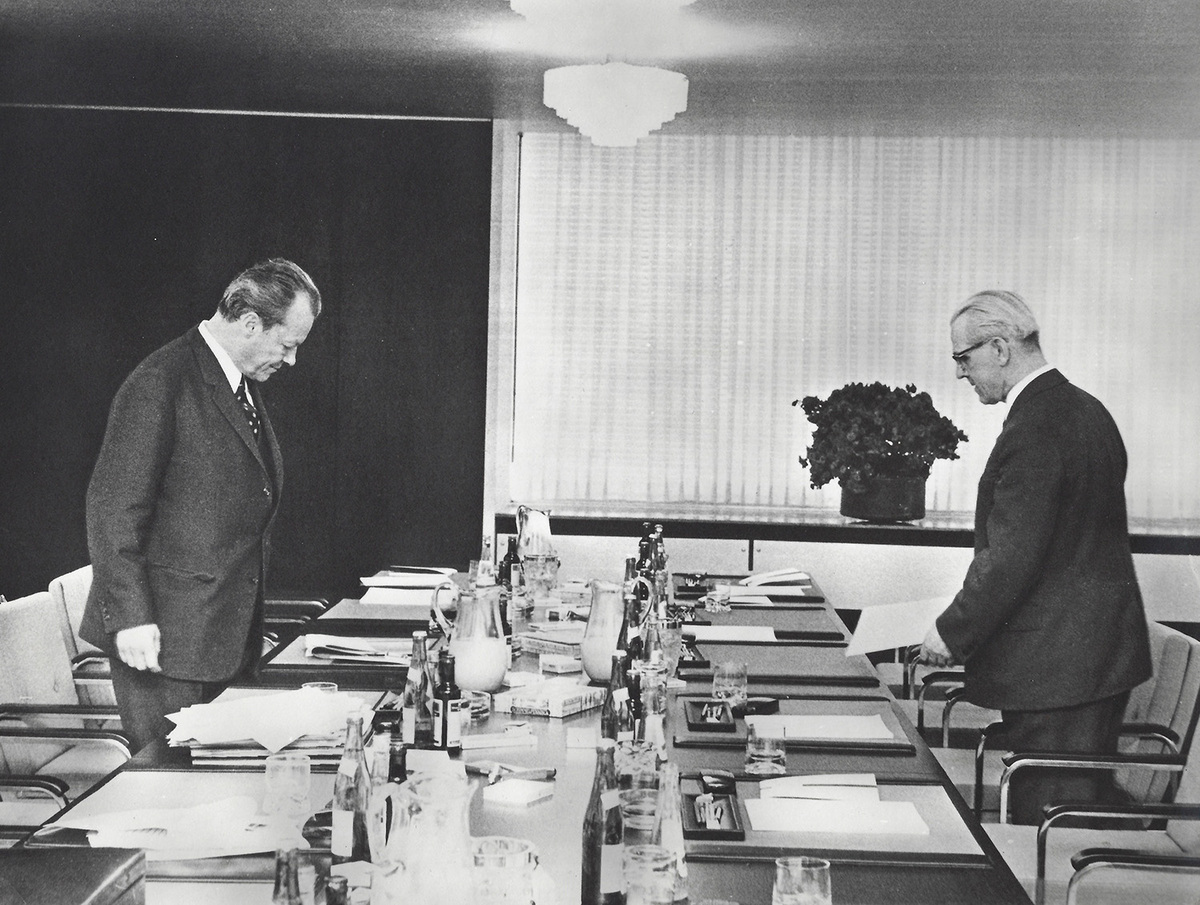Source

Source: Willy Brandt (left) before talks with Willi Stoph (right). March 19, 1970. Signature: BF 43/4 (XI-71). Photo: IN-Bild/Bundesbildstelle.
In his policy statement of October 28, 1969, Chancellor Willy Brandt offered the GDR an opportunity to engage in “mutual and non-discriminatory negotiations at the government level,” with the goal being to secure “cooperation based on treaty agreements.” After corresponding in January and February 1970, Brandt (left) and Willi Stoph, Chairman of the Council of Ministers of the GDR (right), met on March 19, 1970, in Erfurt in East Germany, where Brandt was welcomed by an enthusiastic crowd. At the meeting, Stoph insisted upon official recognition of the GDR under international law; Brandt called for an improvement in the humanitarian situation and recommended that the relationship between the two states be regulated by a treaty—one that excluded, however, the possibility of the very recognition that Stoph was demanding. On May 21, 1979, Brandt and Stoph met again, this time in Kassel (West Germany), where they discussed a 20-point-checklist compiled by the government of the Federal Republic on regulating the relationship between the two German states. Virtually no progress was made at the meeting, and the two sides decided to take put the negotiations on hold.

Source: Willy Brandt (left) before talks with Willi Stoph (right). March 19, 1970. Signature: BF 43/4 (XI-71). Photo: IN-Bild/Bundesbildstelle.
Courtesy of the German Information Center